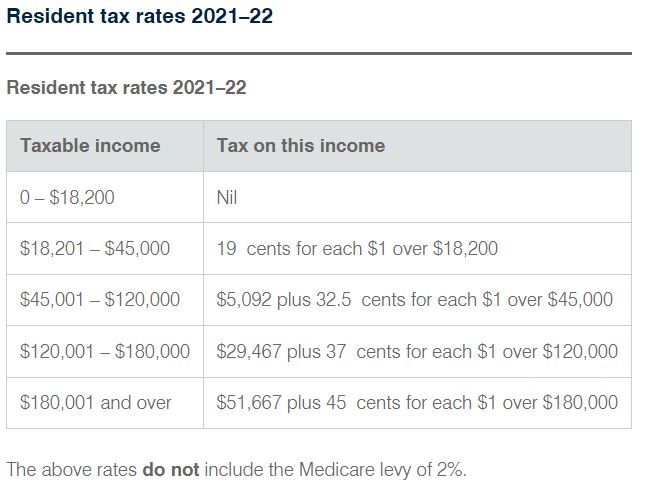How to File Your Tax Return and Maximize Your Refund This Year
How to File Your Tax Return and Maximize Your Refund This Year
Blog Article
Checking Out the Advantages of Declaring an Income Tax Return: Optimize Your Tax Refund This Year
Filing a Tax return is frequently viewed as a difficult task, yet it plays a crucial duty in boosting your financial standing. By methodically reporting income and leveraging readily available deductions and credit histories, individuals can touch into the possibility for substantial tax obligation refunds. Moreover, sticking to tax laws reduces the risk of charges. Understanding the subtleties of this process can reveal neglected opportunities for cost savings. As we discover the various aspects of tax obligation declaring, it comes to be evident that the advantages expand past plain conformity-- what strategies can you adopt to guarantee you are not leaving money on the table?
Importance of Filing an Income Tax Return
Submitting a Tax return is a significant responsibility for companies and people alike, as it offers both compliance and monetary monitoring purposes. Complying with tax obligation regulations is crucial, as failing to submit can result in considerable penalties, passion costs, and possible lawful repercussions. By sending a Tax return, companies and individuals show their commitment to satisfying their civic responsibilities and add to the functioning of public solutions.
Furthermore, filing a Tax return provides a chance for taxpayers to examine their economic scenario. It enables them to track income, expenditures, and general financial wellness, which can notify future budgeting and investment decisions. For many, income tax return are a portal to potential reimbursements, as overpayment of tax obligations throughout the year can be recovered, using a much-needed economic increase.
Furthermore, the income tax return process can help with accessibility to different financial services and products. Lenders commonly call for tax obligation returns when figuring out creditworthiness for car loans or mortgages, making it vital for individuals and services seeking economic help. In verdict, submitting an income tax return is not merely a governing responsibility; it is a substantial action in maintaining economic honesty and exposing prospective advantages.
Comprehending Tax Reductions
Tax obligation deductions are often neglected yet play a vital function in decreasing taxable income and making the most of possible refunds. Understanding the different types of tax obligation deductions offered can considerably impact your overall tax obligation responsibility. Reductions can be classified into two major kinds: basic deductions and itemized deductions.
The criterion reduction is a set dollar amount that taxpayers can deduct from their revenue, differing based upon filing status. For several people, specifically those without considerable itemizable expenditures, taking the basic reduction is useful. On the other hand, itemized deductions allow taxpayers to checklist eligible expenditures, such as mortgage rate of interest, medical expenditures, and philanthropic contributions, potentially yielding a better reduction than the typical option.
Familiarizing on your own with these nuances can aid you tactically plan your finances and maximize your tax return. By recognizing and leveraging tax obligation deductions efficiently, taxpayers can reduce their taxable revenue and improve their general tax obligation reimbursement.
Discovering Tax Obligation Credit Ratings
Maximizing your tax obligation financial savings involves understanding the different kinds of tax obligation credits available to you. Tax obligation credit ratings directly decrease your tax liability dollar for buck, making them a lot more helpful than reductions, which only lower your taxed revenue.
There are two main classifications of tax obligation credit ratings: refundable and nonrefundable. Nonrefundable credit scores can decrease your tax responsibility to zero yet will certainly not lead to a refund if the debt exceeds your tax owed. Refundable credit ratings, on the other hand, can produce a reimbursement also if you have no tax liability, making them specifically valuable for lower-income taxpayers.
Usual tax debts include the Earned Earnings Tax Credit Rating (EITC), which sustains reduced to moderate-income functioning family members and individuals, and the Kid Tax Credit rating, which offers economic relief for taxpayers with dependent kids. Education-related credit histories, such as the American Possibility Credit History and the Life Time Discovering Credit score, aid balance out the expenses of greater education and learning.
Common Mistakes to Avoid
Maneuvering the intricacies of tax obligation returns can lead to a number of typical mistakes that taxpayers ought to be conscious of. One considerable error is stopping working to report all income sources. Also percentages from sideline or freelance job need to be consisted of, as the IRS receives copies of all earnings declarations.
Another constant mistake entails neglecting deductions or credit reports for which read this post here one is qualified. Taxpayers should thoroughly investigate prospective deductions, such as for pupil fundings or medical expenses, to stay clear of leaving cash on the table.
Furthermore, inaccuracies in personal details, such as Social Safety numbers or filing status, can postpone processing and reimbursements. It is crucial to ascertain all details before submission to guarantee accuracy.
Declaring late or neglecting to submit entirely can also lead to penalties and missed out on opportunities for refunds. Taxpayers need to recognize target dates and plan appropriately.
Finally, many people disregard to maintain comprehensive records of expenses and supporting files. Organized paperwork is essential for corroborating insurance claims and promoting any kind of future audits. By staying clear of these usual mistakes, taxpayers can enhance their declaring process and enhance their prospective refunds.
Tips for Maximizing Your Reimbursement

Next, consider adding to pension, such as an IRA. Payments made prior to the tax target date can be subtracted, possibly raising your reimbursement. Furthermore, if you are freelance, make certain to account for business-related costs that can reduce your taxed income.
Another important approach is to file your return electronically. E-filing not just speeds up the handling time but additionally decreases mistakes that can accompany paper submissions. Confirm see here that you pick the right declaring standing; this can greatly affect your tax rate and qualification for particular credit ratings.
Finally, maintain careful records throughout the year. Organizing invoices and financial documents can simplify the declaring procedure and aid you identify prospective deductions that you might otherwise miss out on. By taking these steps, you position on your own to obtain the optimum refund feasible.
Final Thought

By methodically reporting earnings and leveraging readily available deductions and credit scores, people can tap right into the potential for substantial tax reimbursements. For several, tax obligation returns are an entrance to prospective reimbursements, as overpayment of taxes throughout the year can be redeemed, supplying a much-needed financial increase.
Recognizing the various types of tax deductions readily available can significantly impact your total tax obligation. Online tax return Australia. By leveraging and comprehending tax obligation reductions successfully, taxpayers can minimize their taxed earnings and boost their general tax refund

Report this page